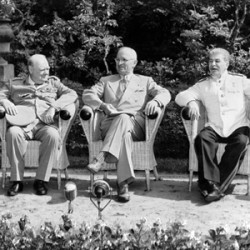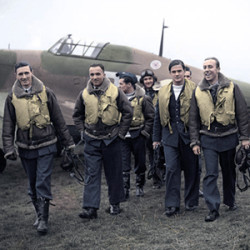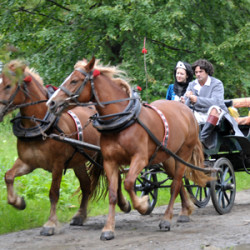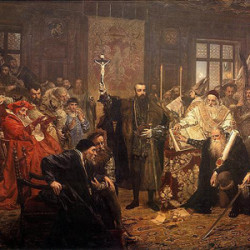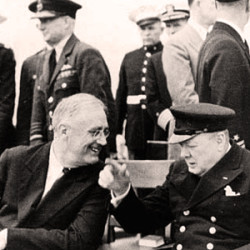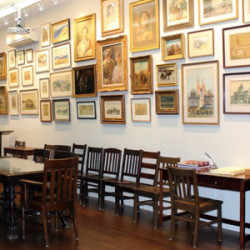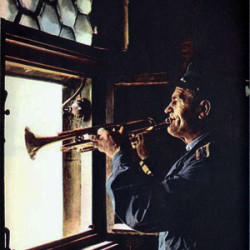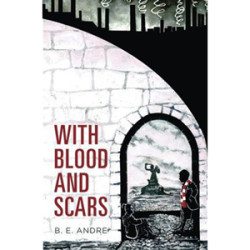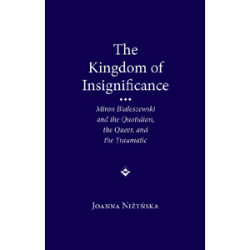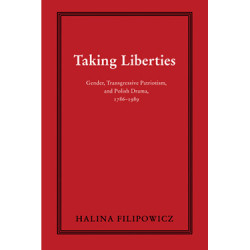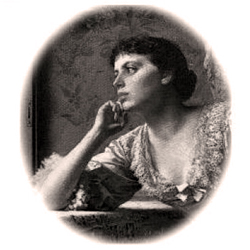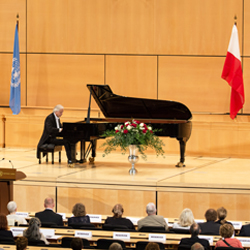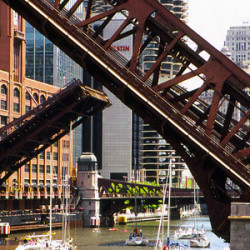2015 Vol. 7 No. 3 — Fall / Commentary
Loss of territory, no reparations from Germany, a dictatorship imposed from abroad, and no safe return for Polish veterans and wartime exiles. In Washington, London and Moscow power and duplicity ruled; honor and integrity collapsed. M.B.B. Biskupski comments.
2015 Vol. 7 No. 3 — Fall / Features
From Norway to Africa, from Russia to the Atlantic, in the air and on the sea, the Polish forces were there for their allies. Justine Jablonska pays tribute to the bravest and most loyal men and women of WWII.
2015 Vol. 7 No. 3 — Fall / Films
There are more statues of Kościuszko in the United States than any other historical figure except George Washington. When Kościuszko talked about freedom, he meant it. So why don’t Americans know who he is? This documentary is a must for a national broadcast. PBS, take note.
2015 Vol. 7 No. 3 — Fall / Books
Ethnic and religious diversity are now hot topics, something never tried before. Really? The Commonwealth warrants new attention. Thaddeus Gromada provides an introduction.
2015 Vol. 7 No. 3 — Fall / Features
Poland, a signatory of the Declaration of the United Nations in 1942, was excluded from the inaugural conference held in San Francisco in 1945. Piotr Długołęcki traces the diplomatic maneuvers that betrayed a faithful ally.
2015 Vol. 7 No. 3 — Fall / Features
Only Beth Holmgren can distill a history of an archive, an ethnic neighborhood, Poland and its not-so-faithful allies, and the Polish diaspora including pro bono architects, a credit union, and great food with so much information, affection and élan. And “sto lat” to the Institute’s director, Dr. Iwona Korga.
2015 Vol. 7 No. 3 — Fall / Features
In a 1988 newscast, Stephanie Kraft heard the hejnał played from the tower of the Mariacki Church and learned that Poles had been doing so all through the communist era. Intrigued by these determined and stubborn people, she chose Poland as her destination for a journalist junket. She has returned every year since.
2015 Vol. 7 No. 3 — Fall / Books / Interviews
Justine Jablonska talks to British journalist Bożena Andre about Andre’s new novel, With Blood and Scars, in which Andre takes on that very difficult challenge: combining the personal and the historical in one story. Not easy, when for so long the world refused to acknowledge the historical.
2015 Vol. 7 No. 3 — Fall / Books
Białoszewski’s works subtly point to the alternative, marginalized, oftentimes unvoiced micro-narratives … showing readers different modes of knowledge and new ways of seeing history and identity. Diana Sacilowski reviews Joanna Niżyńska’s new book.
2015 Vol. 7 No. 3 — Fall / Books
In Taking Liberties, Halina Filipowicz examines the portrayals of patriotism and identity of iconic heroes, from Kosciuszko to Plater and Wałęsa, in Polish drama from the 1600s to the present. Highly original, acutely observed study of loyalty and honor manipulated by triumphalism and xenophobia. Reviewed by Diana Sacilowski.
2015 Vol. 7 No. 3 — Fall / Books
Poland’s 19th century novelist, Bolesław Prus, not only championed the emancipation of women but – thoroughly modern man that he was – identified the problem beyond manners and mores. It’s the economy, ladies! He was a pretty good storyteller too. Stephanie Kraft translates, Irene Tomaszewski reviews.
2015 Vol. 7 No. 3 — Fall / Bulletin Board
by CR × on November 2, 2015 at 1:00 am ×
The Africa-EU Partnership; “The Zookeeper’s Wife” home now a museum; two events on Miron Białoszewski in New York; and a concert at the Assembly Hall of Palais des Nations in Geneva in tribute to Polish pianist Artur Rubinstein.
2015 Vol. 7 No. 2 — Summer
by CR × on June 6, 2015 at 5:00 am ×
Welcome to summer at CR. This issue we visit some great cities, just long enough to catch some theatre – that urban art form – and talk to an award-winning filmmaker; see an exhibit. Then wrap it up at the New York Casino, the pub that has no gambling tables but a lot of food and drink… in the heart of 19th-century San Francisco.
